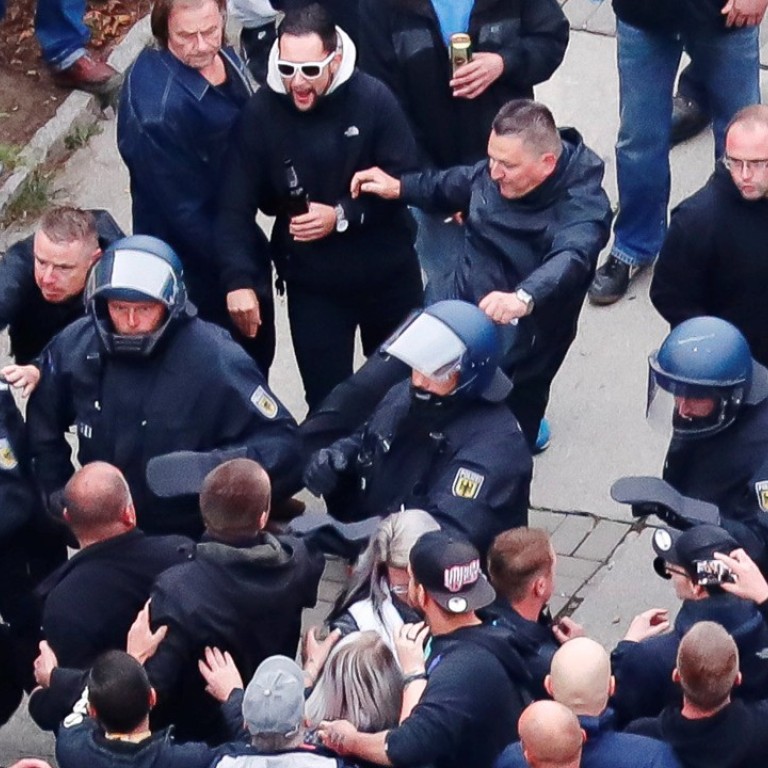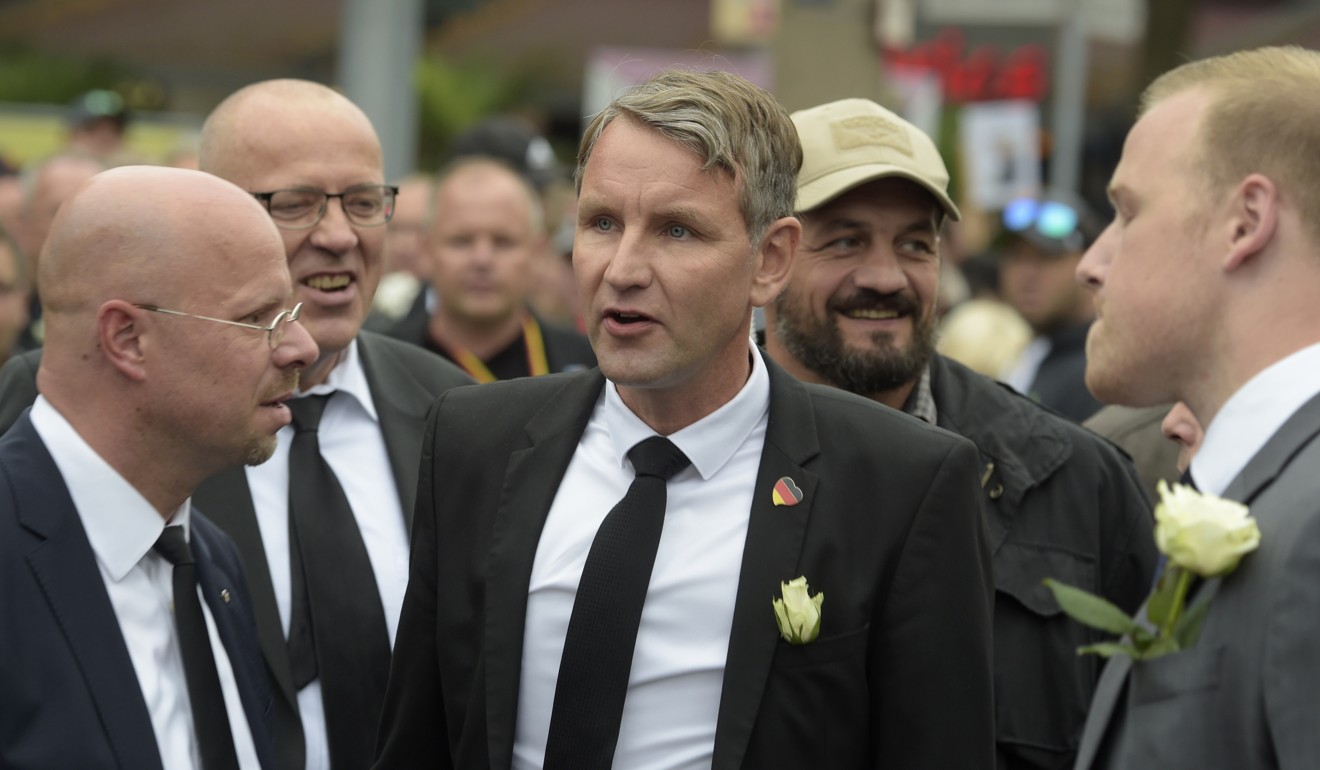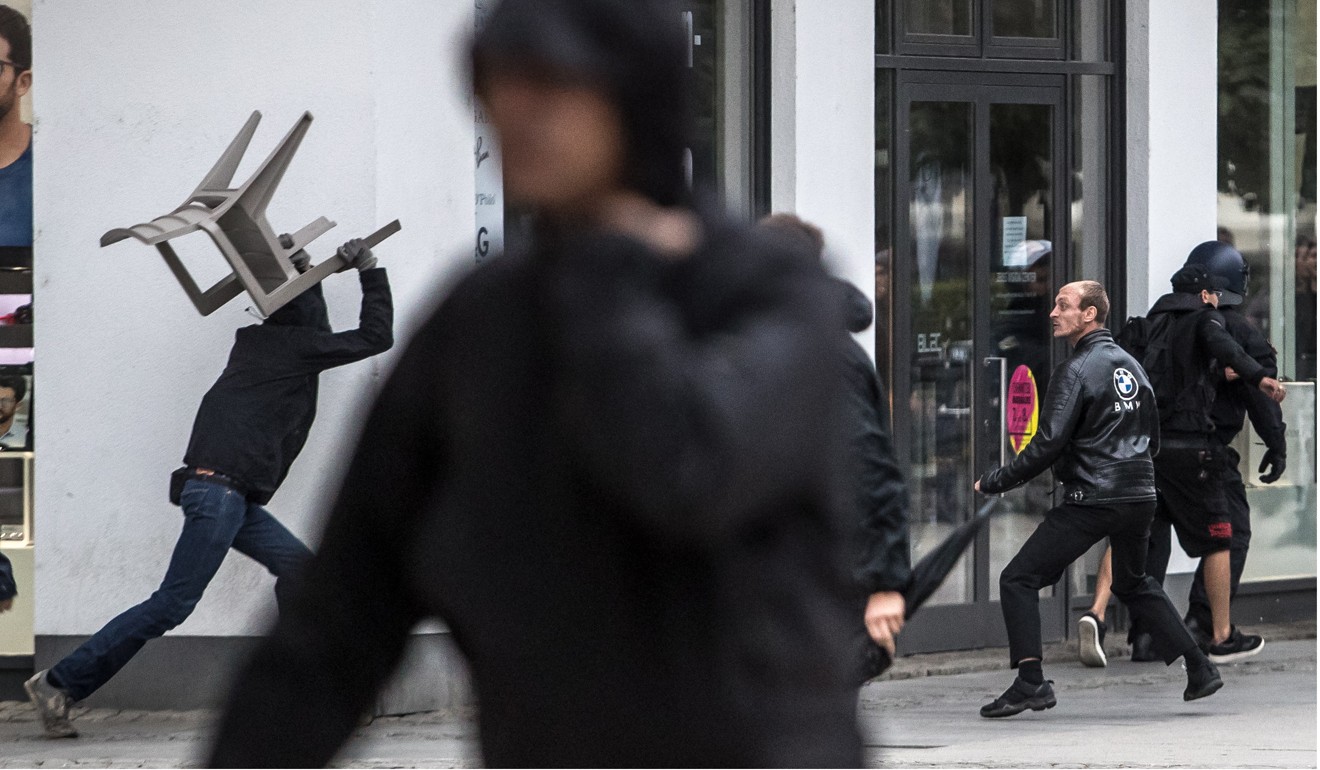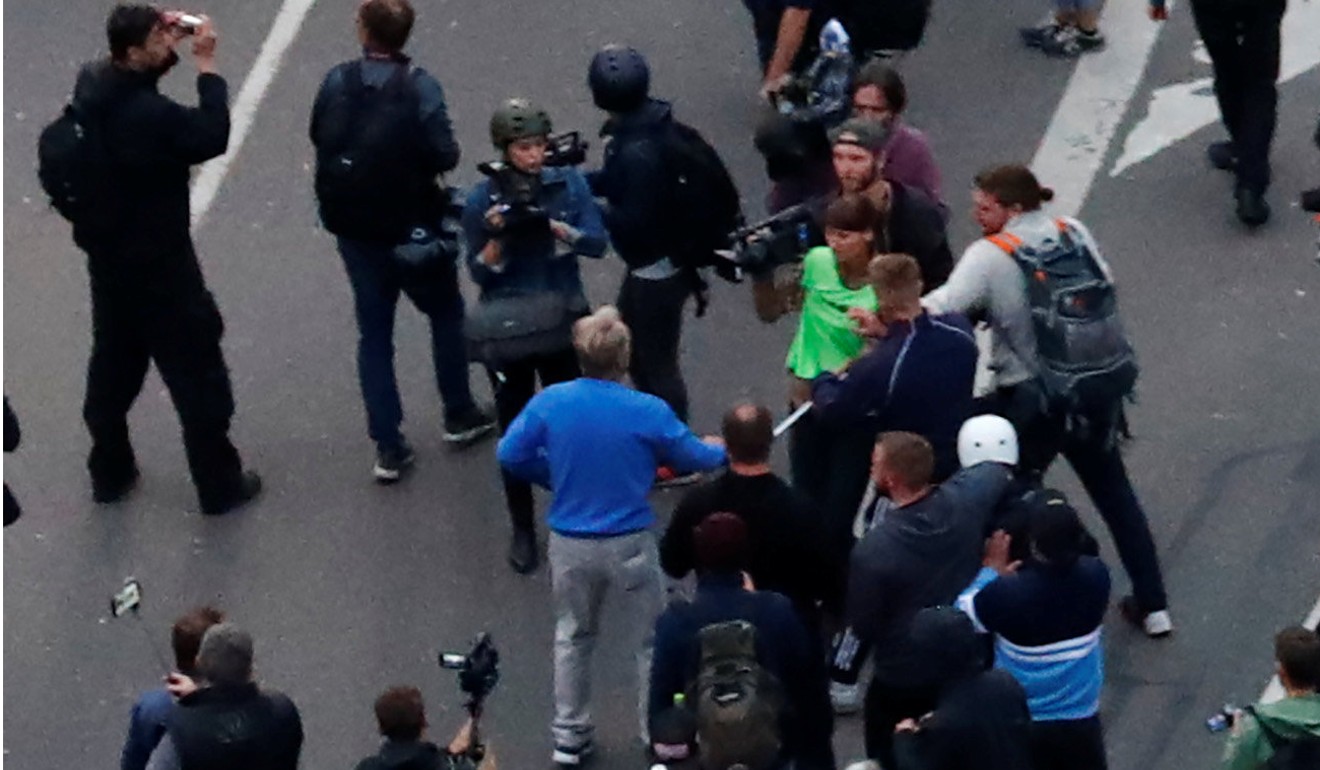
18 injured in German protests for and against migrants
Police say 11,000 people from both sides gathered in the city of Chemnitz for demonstrations, days after migrants were accused of stabbing a man
Eighteen people were injured as the anti-migrant far-right and counter-protesters held opposing rallies in the German city of Chemnitz, which has been in the spotlight after violent protests erupted following the fatal stabbing of a German, allegedly by a Syrian and an Iraqi last Sunday.
On Saturday, thousands of people answered a joint call by far-right party AfD and Pegida (Patriotic Europeans Against the Islamisation of the West) movement to descend again on the streets of the city.
But an equally large number of people turned up to counter protest, including Green party and Social Democratic Party MPs.

According to police estimates, more than 11,000 demonstrators gathered for the separate protests.
Local police, backed up by officers from across Germany, tried to keep both sides from clashing. But as the rallies cleared, scuffles took place among small groups.
SPD MP Soeren Bartol said on Twitter that his group from Marburg were “attacked by Nazis” while they were heading for the bus.
“All SPD flags destroyed and some were also physically attacked,” he wrote, adding that police arrived swiftly to stop the assault.

In all, 18 people were injured, including three officers, police said in a statement on Sunday, doubling an earlier estimate.
Police are also examining at least 37 possible offences, including bodily harm, property damage and resistance against law enforcement officers.
Away from Chemnitz city centre, a 20-year-old Afghan man suffered light injuries after he was assaulted by four masked men. Police said they were investigating whether the perpetrators were demonstrators.
Two smaller demonstrations were also planned for Sunday – one titled “Chemnitz residents sending a democratic signal against violence and xenophobia” and another organised by the Protestant church.

On Monday, German punk band Die Toten Hosen leads a free concert against racism.
Foreign Minister Heiko Maas called on Germans to take a stand against xenophobia.
“We have to get up from our sofas and open our mouths,” he told Bild am Sonntag. “All of us have to show the world that we democrats are the majority and the racists are the minority. The silent majority must get louder.”
The tensions in Chemnitz have underlined the divisions in Germany over Chancellor Angela Merkel’s decision three years ago to keep Germany’s borders open to asylum seekers, many fleeing war in Syria and Iraq.
Misgivings run particularly high in Saxony state, where Chemnitz is located, over the arrival of more than a million asylum seekers since 2015.
The far-right AfD party has won strong support in the region through its campaign against migrant arrivals, and surveys suggest it is poised to become Saxony’s second biggest party in next year’s regional elections.

.png?itok=arIb17P0)